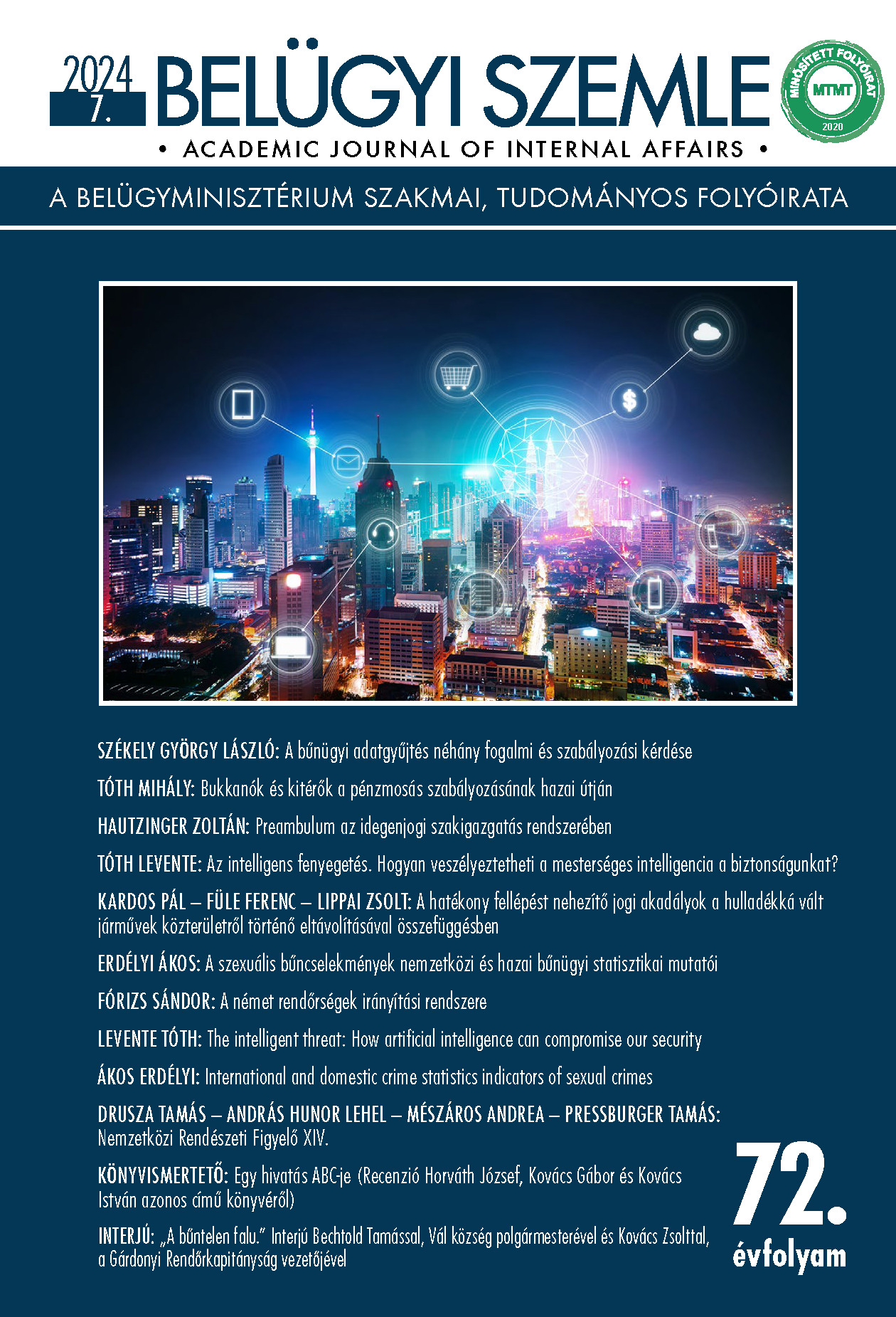Abstract
Aim: The aim of the study is to draw attention to the dangers of using artificial intelligence.
Methodology: Alongside a relevant literature review, the author illustrates the aspects of artificial intelligence jeopardizing our security by providing examples and addresses the existing and evolving regulatory environment.
Findings: Artificial intelligence can directly or indirectly pose a threat to our security. The risks associated with artificial intelligence, coupled with the current rapid technological advancement, make it imperative to establish appropriate and adaptive continuous regulations to ensure the increasing use of AI comes with minimal negative consequences.
Value: The study explores previously overlooked features that compromise security. Its findings can contribute to understanding how artificial intelligence can endanger our security on both narrower and broader societal levels.
References
Oosterloo, S. & van Schie, G. (2018). The Politics and Biases of the “Crime Anticipation System” of the Dutch Police. CEUR Workshop Proceedings, 2103, 30–41.
Russel, S. & Norvig, P. (2010). Artificial Intelligence: A Modern Approach (3rd Ed.). Prentice Hall.
Schönherr, L., Kohls, K., Zeiler, S. & Holz, T. (2018). Adversarial Attacks Against Automatic Speech Recognition Systems via Psychoacoustic Hiding. Network and Distributed Systems Security (NDSS) Symposium 2019 24-27 February 2019, San Diego. https://doi.org/10.14722/ndss.2019.23288
Su, J., Vargas, V. D. & Sakurai, K. (2019). One Pixel Attack for Fooling Deep Neural Networks. IEEE Transactions on Evolutionary Computation, 23(5), 828–841. https://doi.org/10.1109/TEVC.2019.2890858
Tóth A. (2018). Az élőerő munkáját segítő technikai megoldások. Hadmérnök, 13(2), 29–36.
Viola, P. & Jones, M. (2001). Rapid Object Detection using a Boosted Cascade of Simple. In A. Jacobs, & T. Baldwin (Szerk.), Proceedings of the 2001 IEEE Computer Society Conference on Computer Vision and Pattern Recognition (pp. 511–518). Computer Society. https://doi.org/10.1109/CVPR.2001.990517
Zhang, G., Yan, C., Ji, X., Zhang, T., Zhang, T. & Xu, W. (2017). DolphinAttack: Inaudible Voice Commands. Proceedings of the 2017 ACM SIGSAC Conference on Computer and Communications Security (pp. 103–117). https://doi.org/10.1145/3133956.3134052

This work is licensed under a Creative Commons Attribution-NonCommercial-NoDerivatives 4.0 International License.
Copyright (c) 2024 Academic Journal of Internal Affairs

